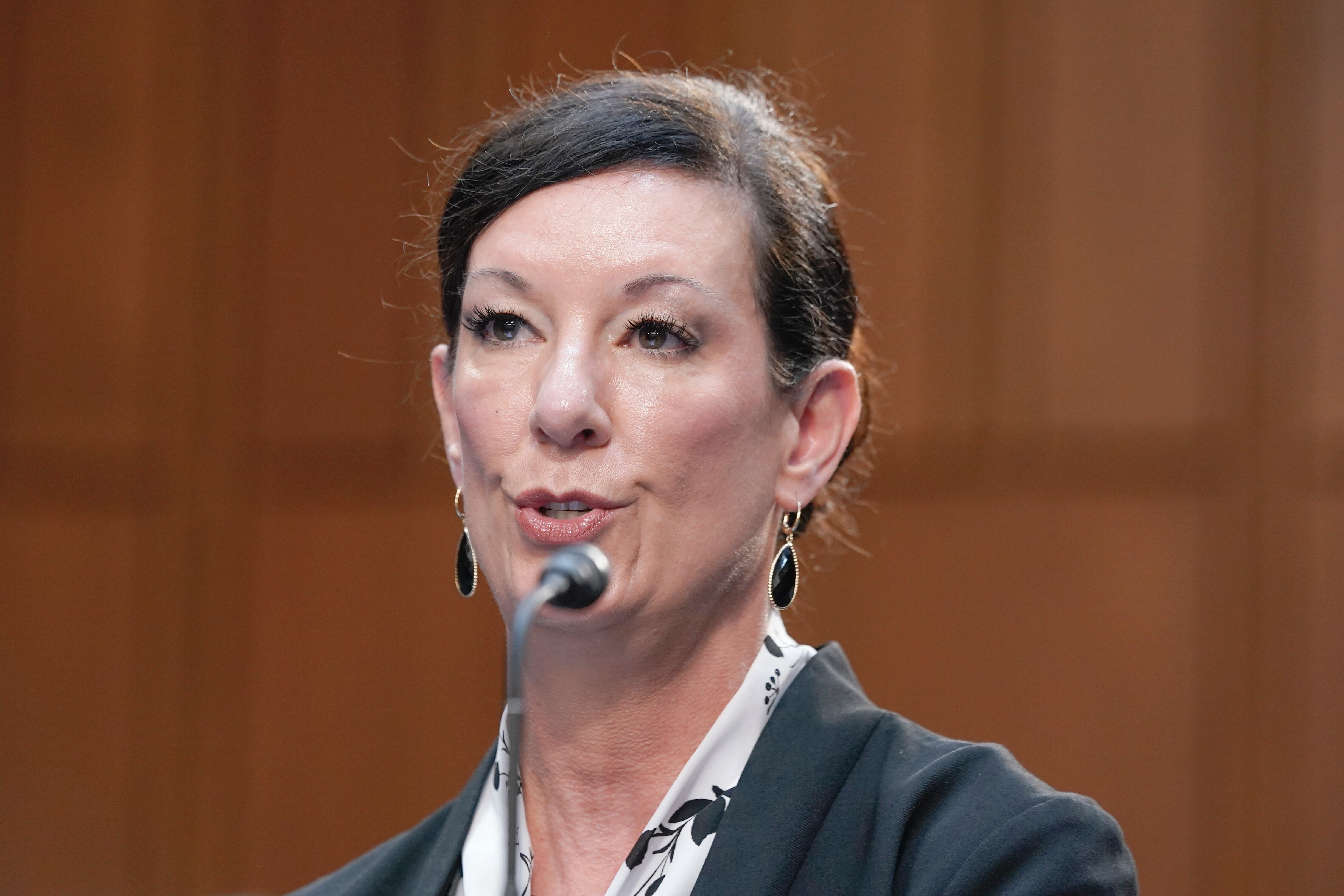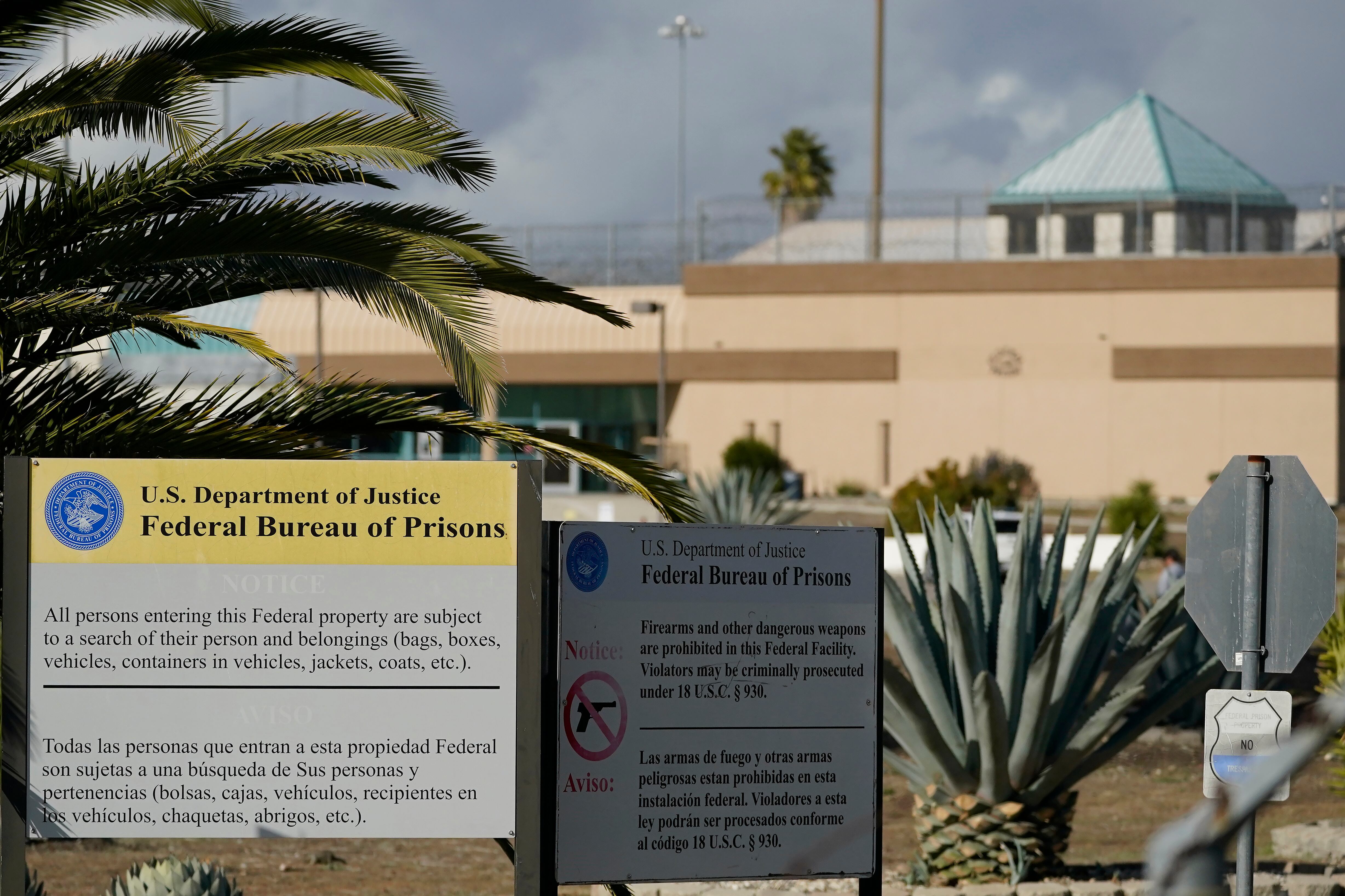Sen. Joni Ernst, R-Iowa, called out the Bureau of Prisons on Wednesday for failing to address prolonged safety and staffing concerns voiced by corrections officers, according to a letter sent to the director of the agency.
Nearly a year ago, Ernst queried the bureau about what it was doing to investigate allegations of sexual misconduct against staff at U.S. Penitentiary Thomson in Illinois. In a follow-up letter sent Oct. 4, Ernst said the agency’s responses to the situation have been “inconsistent” and “inadequate.”
RELATED

“I expected to receive more substantive detail and direct responses to the questions I asked,” she wrote. “I am dismayed by BOP’s slow response to this situation and apparent lack of corrective action in preparation of future similar situations.”
Earlier this year, Thomson employees and the union representing them repeatedly asked BOP Director Colette Peters to address what they felt was becoming an increasingly hostile working environment. The American Federation of Government Employees, which serves 30,000 correctional officers and staff, claimed it tracked more than 300 instances last year of incarcerated individuals harassing working officers who were already under stress due to understaffing.
“Sexual misconduct endured by the staff at Thomson prison on a daily basis is a disgrace,” said Jon Zumkehr president of AFGE local 4070, in a statement. “There is bipartisan support to address this pervasive misconduct. The federal Bureau of Prisons neglected its staff at USP Thomson, and many staff are still suffering trauma from the sexual attacks.”

At the time, a spokesperson for the bureau told Federal Times it was concerned about “frequency of instances where incarcerated individuals are exposing themselves to employees and engaging in sexual self-gratification.”
In the months since, however, Ernst said she has not been given detailed answers about what’s being done about it.
RELATED

“When your agency ultimately responded, it simply stated that USP Thomson was temporarily operating as a low-security facility and a minimum-security camp and that it ‘hope[d] this information [was] helpful,’ Ernst’s Oct. 4 letter said. “It should be noted this was publicly reported information at the time your bureau shared it with me and, frankly, unhelpful, as it did not answer any of my questions.”
A spokesperson told Federal Times on Thursday that the bureau received the letter, but “out of respect and deference to members [of Congress],” it does not share congressional correspondence with the media.
The spokesperson also referred Federal Times to the press release saying Thomson was converted to a low-security prison to reduce dependency on mandatory overtime.
RELATED

“This is a favorable and appreciated outcome for the employees and the incarcerated individuals at the facility who have borne the chronic employment shortages at USP Thomson,” the Aug. 25 statement read.
However, Ernst’s said the change in mission fails to address the concerns of sexual misconduct.
“BOP employees across the country deserve a workplace free from sexual misconduct. Relocating inmates does nothing to ensure they receive one.”
Recruiting for corrections and support staff at facilities nationwide has been a priority for the bureau since Peters took the helm in 2022, though during a recent Senate Judiciary hearing, lawmakers said they were frustrated by the lack of answers the agency had on current vacancy rates for officers.
Molly Weisner is a staff reporter for Federal Times where she covers labor, policy and contracting pertaining to the government workforce. She made previous stops at USA Today and McClatchy as a digital producer, and worked at The New York Times as a copy editor. Molly majored in journalism at the University of North Carolina at Chapel Hill.





